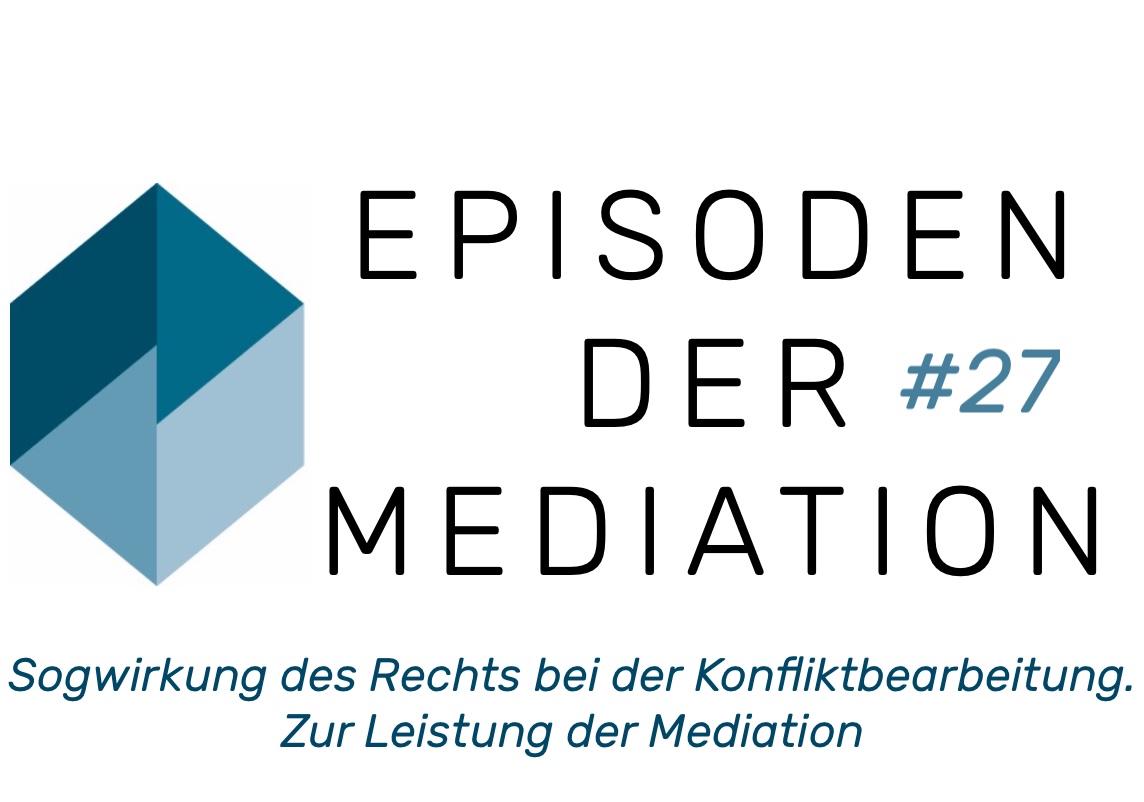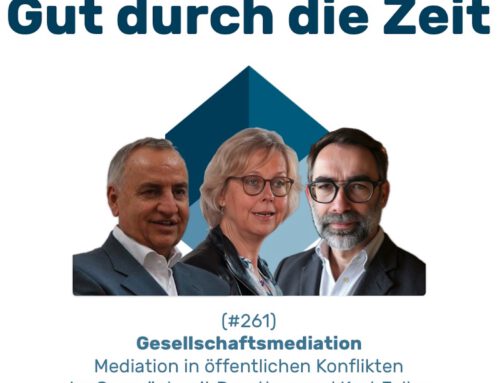#27 EdM
The pull of the law in conflict management.
Mediation services
Episodes of mediation.
The podcast on practical questions about mediation and conflict management.
Welcome to the episodes of mediation,
the INKOVEMA podcast on the practical issues of mediation and conflict management.
I am Sascha Weigel and in this podcast I explain case questions from my mediation and conflict counselling practice. I present concepts and models of mediation and categorise different perspectives and decision-making options.
Chapter
Summary
In this episode of the Mediation Podcast, I discuss the The pull of law in conflict management. I present illustrative examples from my mediation practice which show that how and why legal issues are often at the centre of conflicts. It becomes clear that many mediators may view the law as a disruptive factor and try to exclude it from the mediation process, but this is not expedient. I shed light on why the law has this focal effect in conflict resolution and what helps to gain an appropriate understanding of the law.





Leave A Comment